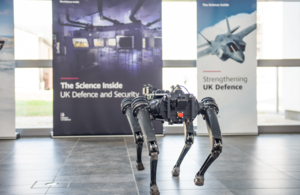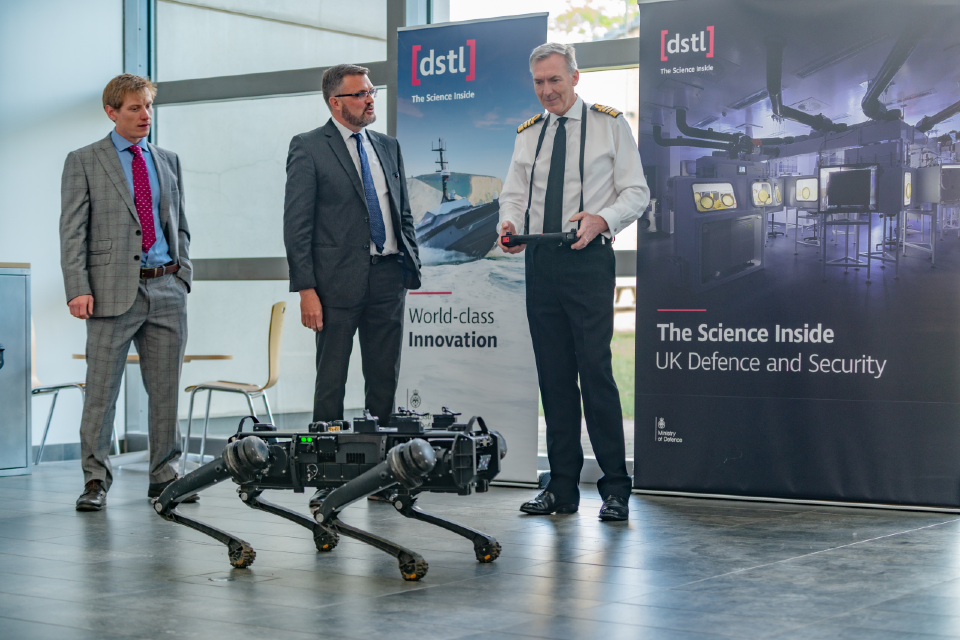Dstl shows off its world-leading science to Head of the UK Armed Forces
Chief of the Defence Staff (CDS), Admiral Sir Tony Radakin, has made a special visit to the Defence Science and Technology Laboratory (Dstl).

Ghost robot dog
He saw first-hand the science and research under development for the future of defence. Among the science on display was a robotic canine, dubbed Ghost Dog. Dstl is using the US-made technology to carry out research in the area of human-machine teaming. The aim is to develop systems that are relevant to operational requirements, and that can support troops by removing them away from potentially dangerous tasks, including surveillance and reconnaissance.
Dstl experts also shared research on armour and protection capabilities, by displaying the latest novel armour system currently in development for the Challenger 3. This system will save lives by providing improved performance, with more protection. The novel technology comes in a series of armour packs, aiming to optimise the design of side armour by reducing its weight. This saved weight can then be integrated into the rest of the vehicle, improving the overall performance with no additional penalty.
Chief of Defence Staff visits Dstl
Admiral Sir Tony Radakin said:
It’s been brilliant to be here at Dstl to see the science inside UK defence and security. Dstl’s work gives Defence the edge in capability and decision-making, it creates prosperity, and crucially saves lives. I’ve been impressed by the breadth of activity, the depth of the technology, and the mullti-disciplinary approach that ensures the Armed Forces, and importantly, the nation have a winning edge over those who want to do us harm.

Chief of the Defence Staff (CDS), Admiral Sir Tony Radakin, operating the Ghost Robot Dog alongside Dstl scientists
As well as the research, design, testing and support to the integration of new armour systems, Dstl scientists have also developed novel methods to capture and analyse information from the battlefield. This information is fed directly back into future armour system development, ensuring systems remain optimised to the changing operational environment. The Scene Capture And Reconstruction (SCAR) tool, developed by the Dstl’s Combat Incident Exploitation Team, has recently been deployed with Dstl Scientific Advisers to benefit UK troops on the front line.
Dstl’s Chief Executive, Paul Hollinshead, said:
It has been a great honour to have the Chief of the Defence Staff here so he can see, up close and behind the scenes, what Dstl does for the Armed Forces and Homeland Security. We have been able to share with him the impact and benefit of Dstl’s work for our Armed Forces, both with our science to support decision-making, deliver capability to our Armed Forces and of course save lives. It has filled me with huge pride to hear him say thank you to our incredible scientists and show his appreciation for what they do for the nation.